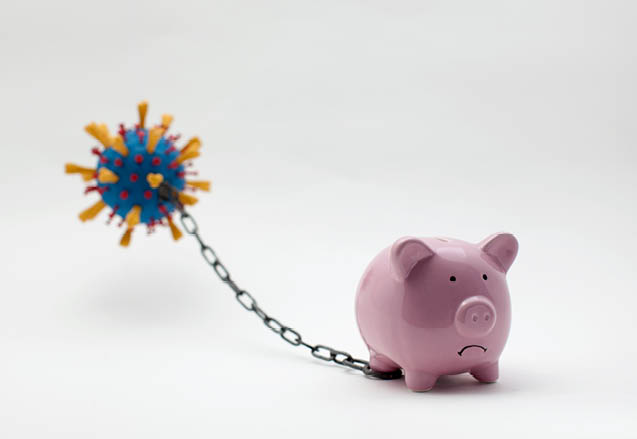During two weeks in May, Karen Staunton lost seven of her 10 regular customers, reducing her income dramatically.
“I’ve been working for myself as a cleaner for eight years and I had lovely, loyal clients, but thanks to Covid-19, they couldn’t employ me anymore, or I couldn’t manage the travel with children at home,” says the Brisbane mother of three. “I remember one day I just cried.”
Staunton’s family finances had always been finely balanced, so the loss of regular revenue was worrying. But when she discovered she’d need to pay privately for an operation – or risk waiting months in the public system – she made the decision to dip into her superannuation fund.
This week, the Australian Tax Office revealed 2.5 million Australians had done the same, withdrawing a massive $27billion from their superannuation accounts.
That’s one million more people making withdrawals much more quickly than tax authorities anticipated.
The government launched the early access scheme in March, billing it as a way to support Australians who’d experienced a Covid-induced drop in income. Under the initiative you could withdraw up to $20,000 from your super (up to $10,000 last financial year, and the rest in this). The scheme still has three months left to run.
Australians have withdrawn $27billion from their superannuation
“I think the government was surprised by the uptake of the scheme,” says Professor Robert Breunig, an economist at the Australian National University. “Having money available to you today is obviously very attractive.”
For women, many of whom work in hard-hit sectors like cleaning, hospitality and retail, ready money seems particularly attractive. Despite withdrawing less than men, women are taking out a larger percentage of their super balances (21 per cent, versus 17 per cent for men). In fact, 14 per cent of women have cleared out their entire account, according to superannuation giant AMP.
This is problematic on several levels, says Christina Hobbs, co-founder and CEO of Verve Super, a fund aimed at women. “We know that women have fewer savings than men and that they already retire with 47 per cent less super than men.”
Like other economists, she believes we’re creating problems for women that will be felt in decades’ time.
“The danger is that we’re pushing the problem of women’s financial inequality into the future. Women know this, of course – they know they’re going to be financially stressed in retirement. But the problem is that many feel it’s the best course of action available to them right now.”

Staunton says both she and her husband withdrew only the amount they needed to pay their credit card balance and the fee for her operation – in her case, $6,000. “I’m relieved we had the option to do it,” she says. “I’m hopeful that once things pick up, I’ll be able to make up the contributions quickly.”
But experts warn that the wonder of compound interest means withdrawals made now can have a startling effect on your balance at retirement. For example, a 40 year old who withdrew the full $20,000 during the pandemic could ultimately end up with $54,000 less in their super account by retirement age. Meanwhile, a 25 year old who has withdrawn $20,000 stands to lose more than $95,000.
Millennials, particularly millennial women, have been disproportionately affected by the Covid-19 economic crisis. In previous recessions, male-dominated industries such as construction have been hardest hit; this time, two-thirds of all job losses have occurred in the hospitality, arts and recreation services and retail industries, which employ more women, wrote Melbourne economist Professor Jeff Borland in The Conversation this week.
“People entering the labour market right now are going to take a long time to recover,” adds Professor Breunig. “The evidence from past recessions is that it’ll take them until their mid 30s to catch up, if they ever do.”
Millennial women have been disproportionately affected
But before we collectively resign ourselves to living with our parents forever, experts say there are ways to mitigate the financial fallout.
Rather than supporting the construction industry with incentives for home renovations, we should be investing in human capital, says tax expert Professor Miranda Stewart of the University of Melbourne. “Traditional stimulus measures won’t work – it’s not that people don’t want to spend on leisure and tourism, it’s that in a pandemic they simply can’t.
“Instead, we should be making it easier for people to study or retrain. I’ve also long advocated free universal child care, not just as a response to Covid-19, but as a general response to economic growth and equity.”
Extending the paid childcare scheme is key to supporting women as the economy picks up, agrees Hobbs, who warns that without it, the future looks bleak for many women. Older women, aged 55 and over, are the fastest growing cohort of homeless Australians, thanks largely, she says, to housing affordability and insufficient super.
“I also believe we should pay superannuation benefit on parental leave, to help maintain women’s super if they take time out to care for children. For me, that’s a great way of helping to close the gap.”














No Comments